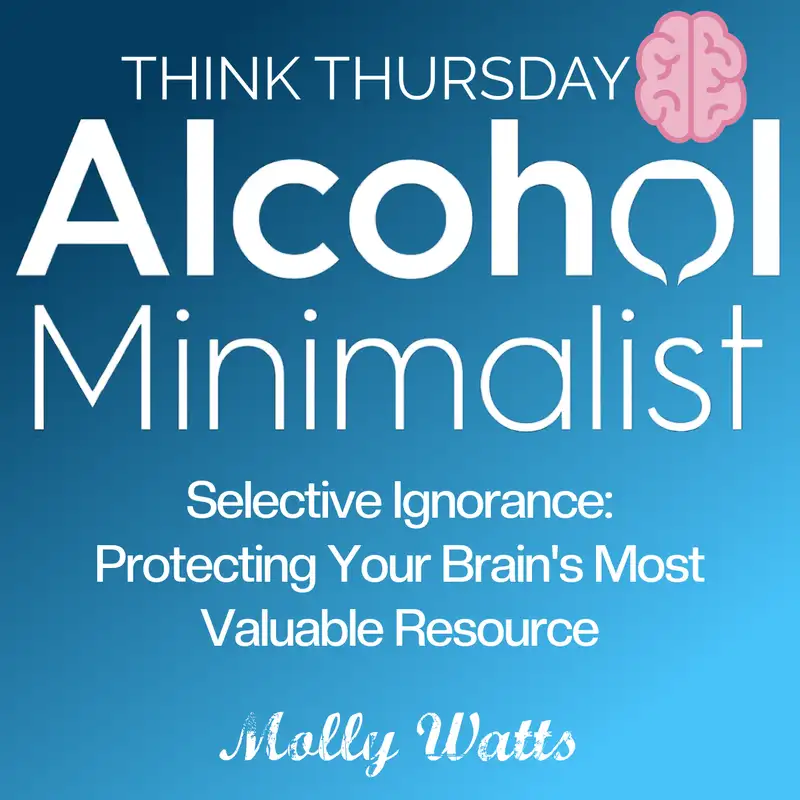Think Thursday: Selective Ignorance-Protecting Your Brain's Most Valuable Resource
In this Think Thursday episode, Molly explores why sometimes not knowing can actually make you calmer, more focused, and more creative. Continuing the theme of counterintuitive brain science, she builds on previous Think Thursday episodes like The Paradox of Freedom, Novelty for Habit Change, and last week’s Defensive Pessimism to show how Selective Ignorance helps protect the brain’s limited capacity for attention, energy, and emotion.
What You’ll Learn
- Why so many principles of neuroscience and psychology feel counterintuitive at first
- How your brain filters 11 million bits of information every second through the reticular activating system
- Why constant news, emails, and notifications drain your mental energy
- How dopamine drives curiosity and why too much novelty burns it out
- What studies show about the benefits of “information fasting” and reduced mental input
- Practical ways to practice Selective Ignorance to improve focus and reduce stress
Key Quotes
“The people who make meaningful change aren’t the ones who know the most—they’re the ones who filter the best.” — James Clear, Atomic Habits“Sometimes not knowing helps you know yourself better.” — Molly Watts
Practical Takeaways
- Curate your inputs. Follow fewer, higher-quality sources.
- Schedule mental quiet. Set “ignorance hours” for digital silence.
- Replace input with reflection. Journal, walk, or sit in quiet thought.
- Remember the enough threshold. Progress comes from applying what you already know, not learning more.
Studies and Sources Mentioned
- Clear, J. (2018). Atomic Habits – Selective Ignorance and focus
- Levitin, D. (2014). The Organized Mind – The attention economy
- Stanford University and University of London – Research on multitasking and IQ
- Killingsworth, M. & Gilbert, D. (2010). Science – Mind-wandering and happiness
- Psychological Science (2015) – Information fasting and creative problem solving
- Desimone, R. & Duncan, J. (1995). Annual Review of Neuroscience – The biased competition model of attention
Related Think Thursday Episodes
- Defensive Pessimism—How Planning for the Worst Helps You Do Your Best
- The Paradox of Freedom
- Novelty for Habit Change
- The Neuroscience of Mental Rest
- Silence Is Golden
- Neurodivergence and the Brain’s Energy Economy

